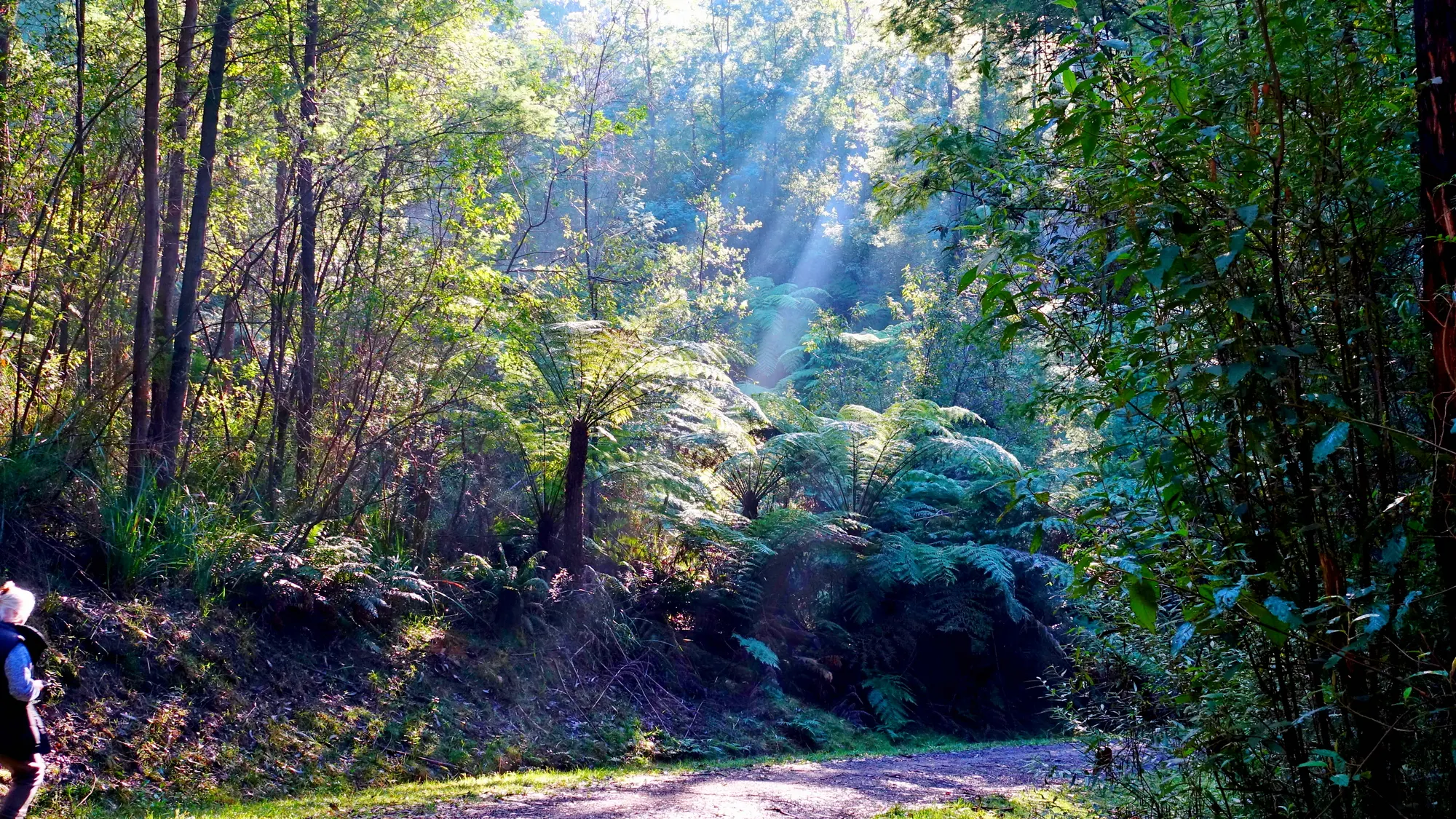 |
| Nangara Reserve Jindivick |
In Japan in 1980, ‘karoshi’, Japanese for ‘worked to death’, was a widespread phenomenon causing ill health often resulting in heart attacks, strokes and even death. Some government-sponsored research determined that time spent in nature would benefit overworked people and a form of therapy called Shinrin-yoku, or forest bathing, was developed. Today there are nature therapy associations with millions of followers around the world. Nature therapy is about slowing down, feeling the breeze, smelling the bush, hearing the birds, etc. - immersing yourself in the natural environment.
As a race, we humans have diverged somewhat from nature with our advances in technology in the last 100 years or so. We have become isolated from nature. We now spend most of our time at work, in our homes, our cars, etc. surrounded by technology to a degree sometimes that some of us even fear nature – biophobia. Various studies around the world now suggest that the decline in our interactions with the natural world is resulting in environmental degradation.
Our urban lifestyle has resulted in less frequent contacts with nature. We are at risk of losing our connection with nature and of developing negative perceptions about our natural environment.
Given that the physiological and cognitive benefits derived from connecting with nature are widely recognized, it is increasingly important that we create urban environments that will stimulate our connections with nature as much as possible. Our future depends on it.


No comments:
Post a Comment